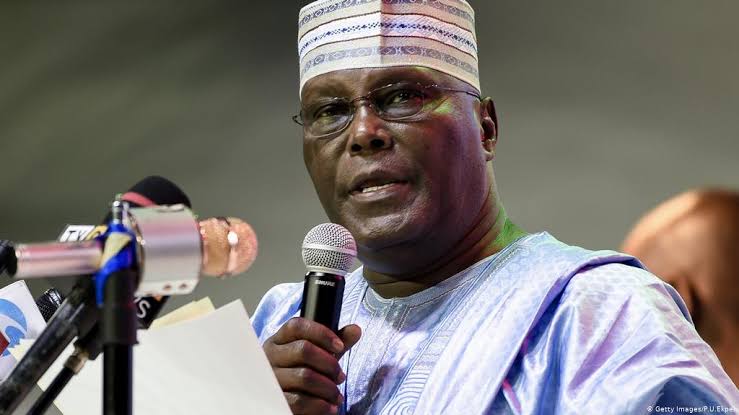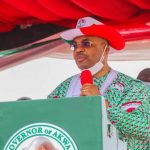Is 2023 the 11th hour for the 11th Vice President of Nigeria, Alhaji Atiku Abubakar, to become the president of the most populous black nation in the world?
Alhaji Atiku, who has made five unsuccessful attempts at the number one position, is expected to throw his hat in the ring once more in 2023 – probably his last.
Media mogul, High Chief Raymond Dokpesi, the leader of the Technical Committee of Atiku Abubakar Presidential Campaign, is touring the 36 states and the Federal Capital Territory (FCT) to solicit support for Atiku in the Fourth Republic.
Atiku, who ran for the governorship of Adamawa State in 1990, 1997, and later in 1998, was elected before becoming Olusegun Obasanjo’s running mate during the 1999 presidential election, is arguably one of the formidable candidates to succeed President Muhammadu Buhari in 2023.
However, Atiku, who contested against Chief MKO Abiola and Ambassador Baba Gana Kingibe for the presidential ticket of the Social Democratic Party (SDP) in 1993, has some storms to calm if he is to be successful in the 2023 presidential election.
Rotational presidency
It is believed in many circles that power should go to the South in 2023 after President Muhammadu Buhari, a Northerner, must have completed his eight-year reign.
In 2021, the 17 governors from Southern Nigeria under the aegis of the Southern Governors Forum (SGF), insisted that the next president of the country must come from the region. They were backed by socio-cultural groups in the region, including Afenifere, Ohanaeze Ndigbo and Pan-Niger Delta Forum (PANDEF), which maintained that this would ensure fairness and justice. Some governors and opinion leaders from the North have also expressed support for the notion.
How will Atiku convince the people of Southern Nigeria to forgo their “turn” in the rotational presidency idea? How will he get the people of the region to vote for him, though, it is argued that if on the ballot, he is the likely candidate to get the most votes from the North in 2023.
However, Dokpesi believes that the presidential ticket of the PDP should not be influenced by the decision of the ruling All Progressives Congress (APC), stressing that the APC produced a Northern candidate in 2015 when the PDP presented a Southern candidate.
“In the PDP, you are aware of the fact that President Obasanjo had a full eight years as a Southern candidate; he was succeeded by Umaru Yar’adua, a Northern candidate. Yar’adua used two and half years during his tenure and the remaining of his tenure was used by Jonathan who did another four years, making a total of six years for Jonathan. And since then, we have not had a candidate from the North. So, the North is still in deficit if we are to look at it,” he said in a recent interview with Daily Trust.
Chief Dpkpesi promised recently that if elected, Atiku would rule for a single term of four years, which would pave the way for the South, especially the South East, to produce the president in 2027.
Will these arguments resonate with the majority of Nigerians at the poll in 2023?
Perennial contestant
A former Deputy Director in the Nigerian Customs Service (NCS), Atiku is seen as a perennial contestant after five unsuccessful attempts.
In 1993, Abubakar contested the SDP presidential primary, losing to MKO Abiola. He defied all the hurdles initiated by then President Obasanjo to run as the presidential candidate of the Action Congress (AC) in 2007.
He came distant third behind Umaru Yar’Adua of the PDP and Buhari of the All Nigeria Peoples Party (ANPP). He returned to the PDP and contested the party’s primary, losing out to the then incumbent President Goodluck Jonathan.
In 2014, he joined the APC ahead of the 2015 presidential election and contested the presidential primary, losing to Buhari. In 2017, he returned to the PDP and was the party’s presidential candidate during the 2019 presidential election, again losing to incumbent President Buhari.
Pundits and critics believe that Atiku should take a break and support others in their political pursuits. One of the spokespersons of the Atiku Abubakar Presidential Campaign Organisation during the 2019 elections, Kassim Afegbua, recently urged the Waziri of Adamawa not to make himself a “perpetual candidate” for the presidency.
How will Atiku be able to convince Nigerians that his presidential bid is not a lifetime ambition but a genuine love for the country and humanity?
Age
While Atiku has not shown any sign of health challenge, at least, to public knowledge, age is not on his side, especially at a time that there is popular yearning for younger leaders to take over the affairs of the country. If elected, Atiku will be six months shy of his 77th birthday by May 29, 2023.
Seyi Makinde, one of the governors and leaders in his party, recently charged Nigerians to choose wisely in 2023 by electing people that had the required physical and mental capacity to run the affairs of the country.
“We have seen a lot of elder statesmen who want to run this country at age 75 or 78. I want them to think twice, and I am saying to the people of Oyo State and Nigeria that this world is not easy.”
“We are in election season, basically and what I will say to us as a people is that we need to choose wisely and elect the people who have the energy to truly serve the country,” said the Oyo State governor.
Is this a direct message to Atiku who is 75?
Questions over wealth
Alhaji Atiku is seen as one of the wealthy politicians in Nigeria. Sadly, in Nigeria, politicians are seen as corrupt. This has made critics of the former VP question his source of wealth. Although he has not been convicted of any corruption charge, the perceived toga of corruption is another storm he must be ready to navigate ahead of the 2023 electioneering campaigns.
Critics are always quick to reference some of the uncomplimentary statements and corruption allegations levelled against him by his former boss, Obasanjo.
Atiku, who recently divested from the country’s largest logistics company, Intels Nigeria Limited, a company he co-founded, must find a way to counter this narrative to win the hearts of the neutrals.
The governors’ obstacle
The 13 PDP governors are the most powerful bloc within the party. They control the structure of the party. This was demonstrated during last year’s convention where they ensured the emergence of their candidates, getting 18 of the 21 positions through consensus.
With this, pundits say the governors have taken over the soul of the main opposition party ahead of the 2023 politicking. This powerful bloc is expected to have a major say in the emergence of a presidential candidate in the party. Eight of the governors are from the South and were part of the resolutions of the SGF; that the region must produce the next president.
In the build-up to the 2019 elections, it took the last-minute intervention of the “generals” for Atiku to beat Sokoto Governor, Aminu Tambuwal, who was the preferred candidate of the PDP governors, to the presidential ticket during the primary in Port Harcourt. To register their displeasure against the decision, Rivers State Governor, Nyesom Wike, and Ayodele Fayose of Ekiti, publicly displayed their ballot papers, showing they voted for Tambuwal despite the order from the “generals”.
Can Atiku woo Wike and others to support his ambition this time? This is seen as the major storm he needs to sail through.
However, a stalwart of the party, said Atiku would enjoy the support of the governors to pick the ticket.
“Politicians are very smart and calculative. Who among the governors has declared or shown interest in getting the party’s ticket? A Northern candidate is their best bet of defeating the ruling APC,” he said.
He hinted that what the Southern governors from the party were doing was how one of them would pick the vice president slot by ensuring that Atiku does not unilaterally decide his running mate as he did with Peter Obi in 2019.
Atiku’s media aide, Paul Ibe, who said that Nigeria was facing an existential threat owing to insecurity, joblessness, among other challenges, said an unusual leadership was needed in unusual circumstances.
“What is important is for everyone to understand where we are in our history – we are facing historical monumental challenges. When you are faced with unusual circumstances, you need someone who can provide unusual leadership. Leadership that will get to work from day one, leadership that will unite everybody.
“Does Atiku have these values? Yes, he is an experienced and committed leader. A detribalised leader who can bring everybody together, a creator of jobs who has demonstrated his expertise in his business, among others. He is visionary,” he said.
Dailytrust






